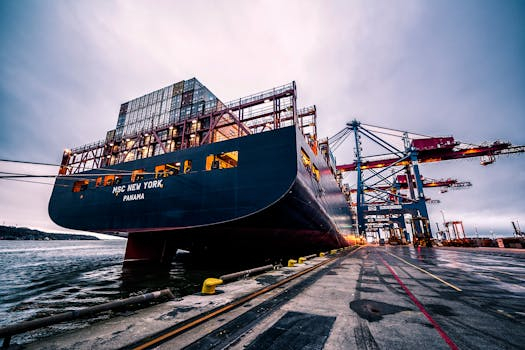Local Solutions Over Global Supply Chains: The Shift in Food Systems
The global COVID-19 pandemic has exposed the vulnerability of our current food systems and supply chains. As people across the world faced food shortages, disrupted supply chains, and rising food prices, it became clear that our reliance on global supply chains was not sustainable. This realization has led to a shift towards supporting and investing in local solutions for food production and distribution. In this article, we will discuss the importance of local solutions over global supply chains in transforming our food systems for a more sustainable and resilient future.
The Problems with Global Supply Chains
For years, global supply chains have dominated the food industry, with large-scale production and long-distance transportation being the norm. This system has been driven by the desire for cheaper prices and an ever-increasing demand for convenience. However, this reliance on global supply chains has resulted in several challenges and risks:
1. Environmental Impact
The transportation of food products over long distances contributes significantly to greenhouse gas emissions and air pollution. Moreover, the large-scale production of crops often involves the use of synthetic fertilizers, pesticides, and other chemicals, which can have harmful effects on the environment and biodiversity. Local solutions, on the other hand, promote sustainable farming practices that are better for the environment.
2. Food Safety
In recent years, there have been numerous food safety scares due to contaminated products being shipped across the globe. With global supply chains, it is difficult to trace the source of contamination, making it challenging to prevent or control outbreaks. In contrast, local food systems have shorter supply chains, making it easier to trace and address any food safety concerns.
3. Food Security
Global supply chains are vulnerable to disruptions, as seen during the COVID-19 pandemic. When borders closed, and transportation was restricted, many countries faced food shortages and rising prices. This highlighted the need for a more resilient food system that is less reliant on external factors. Local solutions can provide a more secure food supply, as they are not as heavily impacted by global events.
The Benefits of Local Solutions
The shift towards local solutions is more than just a response to the current challenges of global supply chains. It also brings many benefits to individuals, communities, and the environment:
1. Supporting Local Economies
Investing in local solutions means supporting local farmers, producers, and businesses. This, in turn, helps to boost the local economy and create job opportunities. By purchasing locally-grown food, consumers can contribute to the sustainability of their communities and reduce their carbon footprint.
2. Fresher and More Nutritious Food
With a shorter supply chain, locally-produced food can be harvested at peak ripeness and delivered to consumers quicker. This results in fresher and more nutritious produce. Additionally, many small-scale local farmers use sustainable and organic farming practices, resulting in healthier food options for consumers.
3. Strengthening Food Security
A diverse and decentralized food system, with a mix of large-scale and small-scale production, is more resilient to external shocks. By supporting local food systems, communities can strengthen their food security and have more control over their food supply. This is especially important in times of crisis.
The Way Forward: Balancing Global and Local Solutions
While the shift towards local solutions is crucial for the future of our food systems, it does not mean the complete elimination of global supply chains. Both global and local solutions have their advantages, and a balance between the two is necessary. For example, global supply chains can be useful for obtaining specific products that are not available locally, such as certain fruits and vegetables. Local solutions, on the other hand, can focus on meeting the demands of the local population and reducing the need for imports.
In conclusion, the COVID-19 pandemic has highlighted the importance of local solutions and the need to transform our food systems. By supporting and investing in local food production and distribution, we can create more sustainable, resilient, and secure food systems for the future.








